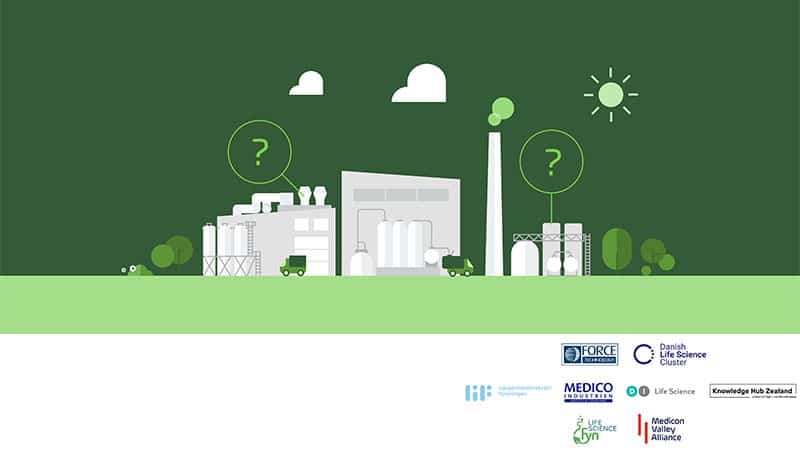New report: More focus on green transition and digitalization – but companies lack manpower

In collaboration with a number of partners, FORCE Technology and Danish Life Science Cluster are publishing a new report showing that Danish life science companies are focusing more and more on green transition and digitalization. But the development risks being hit by a major shortage of qualified labor.
Green transition and digitalization take up significantly more space in the sector today than three years ago.
This is shown in the new report ‘Technological needs and challenges in the life science industry in Denmark‘.
At the same time, the report shows that recruitment difficulties are the biggest challenge for the entire industry and for the individual company. Directly questioned, 51% of the responding companies answered that recruitment is their biggest challenge, and among the medium and large companies, the percentage is up to about 70%.
Green transition and digitalization take up more space in the life science sector
The report was prepared for the first time three years ago, and the new version documents that life science companies have a strong focus on green transition, with as many as 78% answering that green transition is either important or very important – a percentage that in 2020 was below 50%.
Similarly, there is also a high focus on digitalization, as 85% of the respondents in the survey consider the area important or very important – in 2020, this percentage was 87%.
“The report paints a clear picture of a Danish life science industry that is in full swing with the twin transition – i.e., the work with digitalization as a means towards a greener and more sustainable future. It is in every way the right development that is on the way, helped along the way by new technologies, data, and broad innovation collaboration with actors from the entire life science value chain. We are experiencing a great demand for technological competencies, and the report underlines even more clearly how much companies both want and can move in favor of the green, says Hanne Christensen, CEO, FORCE Technology.
Sustainability and digitalization follow the zeitgeist
Increased focus on green transition is evident, among other things, in the fact that a significantly larger proportion of companies have now started – or have come a long way – with initiatives such as:
- implementing ESG reporting
- Conversion of production towards less waste and energy consumption
- less CO2 emission
- improving the environmental footprint of products; and
- Transition to sustainable materials, etc.
The companies also respond that data in 2023 has acquired a different high value. This is shown by the fact that today data is used to a much greater extent throughout the production chain – from data for optimization of manufacturing processes, over the use of usage data in product development, to use in documentation and reporting.
This is a significant development compared to 2020.
It is increasingly simulation, robotics, AI, and machine learning that companies are using – but are still struggling to reap the full benefits of.
Read more about: The technology challenges of the life science industry
Facts
The report is based on an anonymous questionnaire survey involving 153 respondents in Danish life science companies. The responses were collected in the period May-June 2023.
The questionnaires are a repeat of the same survey conducted in December 2020.
The study was conducted by FORCE Technology in collaboration with Danish Life Science Cluster, Pharmaceuticals Industry Association LIF, Medicoindustrien, DI Life Science, Knowledge Hub Zealand, Medicon Valley Alliance, and Life Science Fyn.
- Denmark’s Life Science Industry employs more than 50,000 people and accounts for approximately 20% of the total Danish exports of goods.
- The government is working on a strategy for life science to ensure that Denmark can maintain its position as a leading life science nation. The strategy is scheduled to be launched in the spring of 2024.
